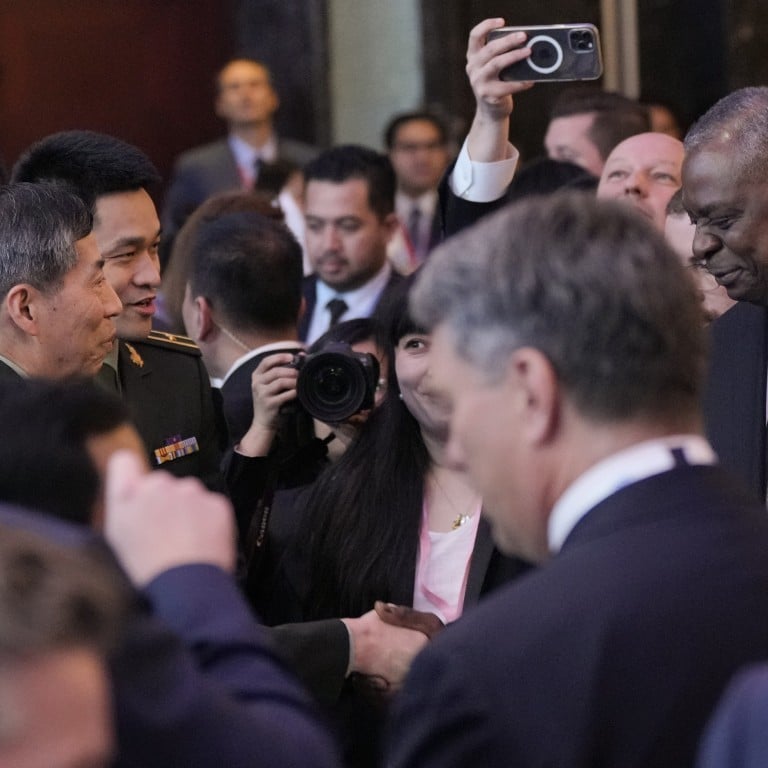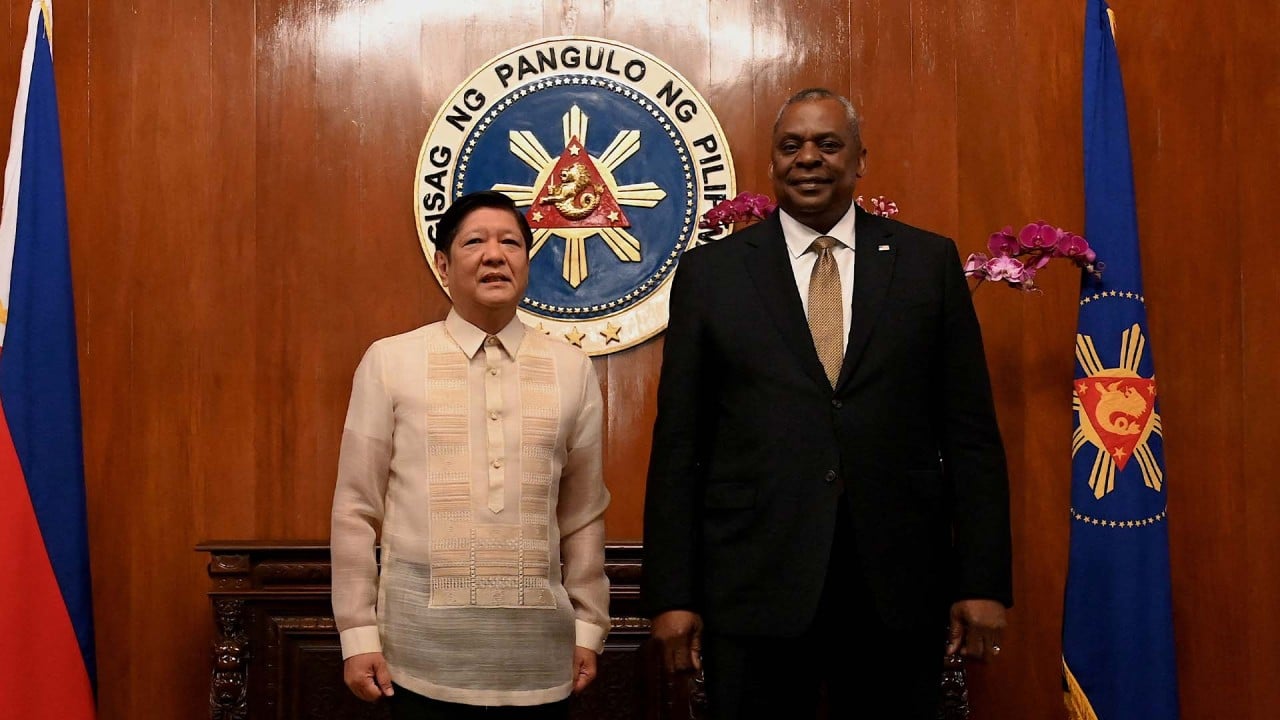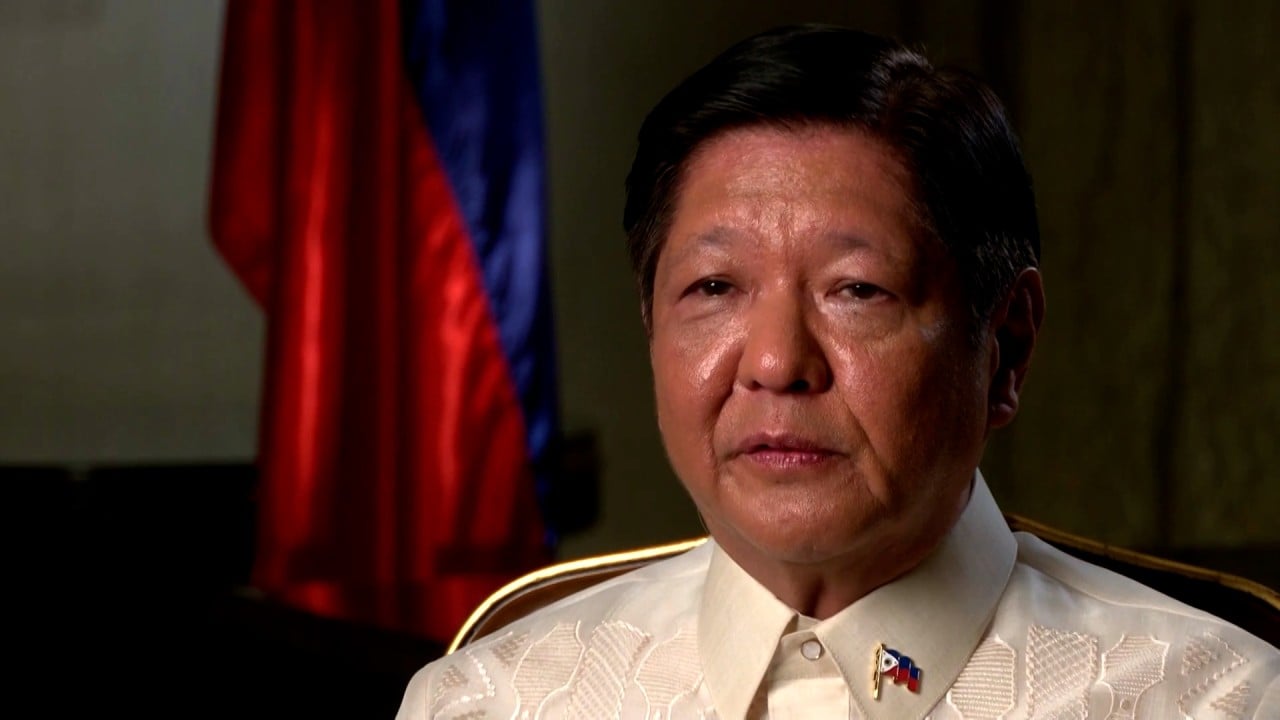
Shangri-La Dialogue: US and China in the same room but worlds apart on Taiwan, South China Sea
- All hope of fresh talks snuffed out as American and Chinese delegations return to their well-worn differences
- US defence secretary highlights push for regional alliances while PLA official justifies military activity
Austin’s speech to the conference covered the biggest frictions in the military relationship between the two countries, and stressed US determination to work with Asian allies to deter aggression and prevent conflict.
He also said the US network of friendly countries in Asia would defend against coercion, especially in the Taiwan Strait.
The comments prompted Lieutenant General Jing Jianfeng, vice chief of the Central Military Commission’s Joint Staff Department, to accuse the US of “hollowing out the one-China principle” by strengthening exchanges between US and Taiwanese officials, condoning Taiwanese separatist activities and selling lethal weapons to Taiwan.
“There’s only one China in the world, and Taiwan is a sacred and inalienable part of Chinese territory,” Jing said, stressing the one-China principle “represents the consensus of the international community”.
However, other countries have their own Taiwan policies, which do not entirely align with Beijing’s.
Most countries, including the United States, do not recognise Taiwan as an independent state. Washington, however, opposes any attempt to take the island by force.
As the conference gathered pace on Saturday, the guided-missile destroyer USS Chung-Hoon and the Canadian frigate HMCS Montreal sailed through the Taiwan Strait.
The US Seventh Fleet said the transit showed the commitment of the US and its partners to a free and open Indo-Pacific.
Jing said the frequent passages by US warships through the Taiwan Strait and Washington’s attempts to draw more countries in to “interfere” in the Taiwan issue had further encouraged the self-ruled island’s independence-leaning forces, forcing the People’s Liberation Army to step up its military exercises in the area.
“The PLA’s retaliatory military operations … targeting the Taiwan separatist activities and the interference of external forces … are completely justified, lawful and beyond reproach,” he said.
“The PLA has been fully prepared and ready to firmly defend China’s sovereignty, reunification and territorial integrity at any time.”
Another member of the Chinese delegation, Senior Colonel Zhao Xiaozhuo, from the PLA Academy of Military Sciences, also took aim at US military aid to Taiwan, saying it was “a plot” to “legalise” Washington’s intervention in the Taiwan issue.
“The US doesn’t want to see a stable Taiwan Strait because it wouldn’t fulfil the US’ Indo-Pacific strategy to let it send more troops and deploy more weapon systems to the region, while Taiwan would need to buy more US weapons,” Zhao said.
Shangri-La Dialogue puts focus on shifting US-China military balance
Jing, from the Central Military Commission, also objected to Austin’s accusation that a PLA aircraft engaged in “risky intercepts” in the South China Sea, a disputed waterway through which a large share of the world’s trade passes.
Jing said the Shandong aircraft carrier was conducting drills in the area and the US plane’s close-in reconnaissance warranted the expulsion.
“The PLA’s reaction was a necessary response to the provocation of certain countries, and was legal, justified, safe and professional,” he said.
Jing said the risk of a greater crisis would only grow as the US increased its deployment of weapons and troops to the region, and as it pressured external parties to “meddle in the regional issues”.
Beijing claims almost the entire South China Sea as its territory, claims that are contested by the Philippines, Vietnam, Brunei, Malaysia – and Taipei.
The US is not a claimant but it conducts frequent freedom of navigation patrols in the waters.
Lieutenant General He Lei, another member of the PLA delegation, said China preferred to negotiate on a bilateral basis with rival claimants.
“The US’ move to join with its allies, especially the Five Eyes alliance and other European countries, to meddle in the regional issue … will only complicate the issue,” He said.
“You Americans live thousands of miles away from the South China Sea. Why are you coming here to provoke other countries to confront China?”
Former Chinese ambassador to the US Cui Tiankai said Europe had “mismanaged” its security, as exemplified by its response to the Ukraine war, and should look to the Asia-Pacific for its approach to peace and stability.
“We should also learn something, a very important something, from [Europe’s] lack of success. I don’t want to use the word ‘failure’, but lack of success.”
The Chinese delegation said that overall Austin’s speech was less “hostile” than the one he gave last year, but Beijing decided against resuming high-level military-to-military communication because of the US push to enlist allies in and outside the region to “meddle in regional issues”.
Jing said that 32 years after the Cold War, US-led alliances had divided the world into ideologically driven camps and provoked confrontation.
“The US pursues its selfish interest, regardless of other countries’ aspirations for stability and uses them as pawns through trickery and coercion,” he said.




